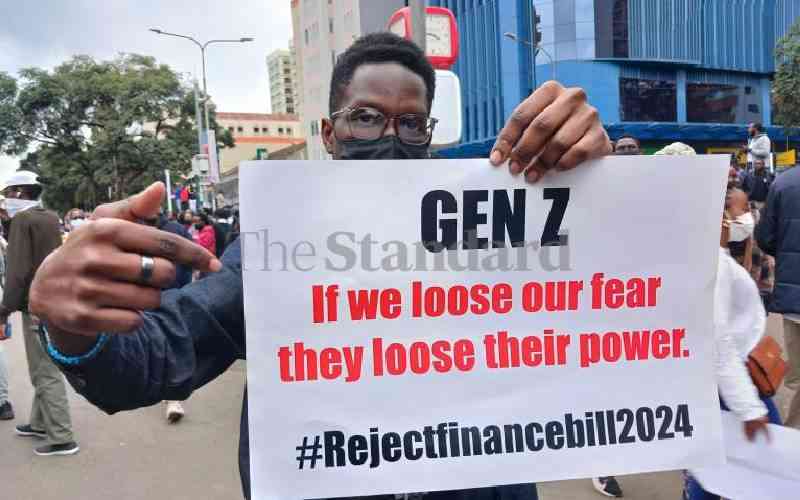×
The Standard e-Paper
Kenya’s Boldest Voice

I watched with anger the clip of a Kenya Kwanza legislator dismissing anti-Finance Bill protests that rocked Nairobi and other parts of the country earlier this week as fake.
John Kiarie, a former Redykyulass comedian and current Member of National Assembly for Dagoretti South may have been forgiven for taking the joke too far when he claimed that photos of Gen Z protestors on Nairobi streets were graphically manipulated to create a false narrative. He would have been forgiven, but he was not joking.